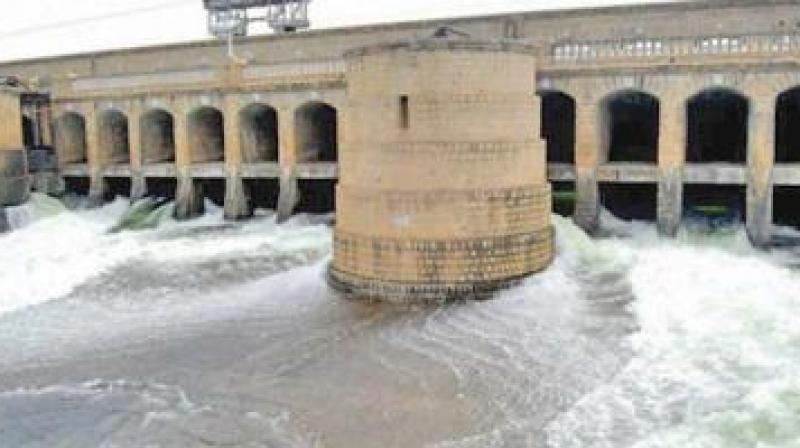Karnataka to SC: 1892, 1924 Cauvery pacts don't exist now
Karnataka did not want to make politics out of it and accepted TN's reply.

New Delhi: Continuing its tirade against the findings of the Cauvery Water Disputes Tribunal, Karnataka on Thursday questioned the methodology adopted by the Tribunal in apportioning 192 tmcft of water to Tamil Nadu in the final award of February 2007 which goes against Karnataka’s interests.
Senior counsel Fali Nariman, appearing for Karnataka made this submission before a three-judge bench of Justices Dipak Misra, Amitav Roy and A.M. Kanwilkar hearing a batch of appeals filed by Karnataka, Tamil Nadu and Kerala against the final award.
Mr Nariman argued that the approach of the Tribunal was that the 1892 and 1924 agreements between the princely State of Mysore and Madras Presidency continued to exist, while in reality the agreements did not exist after the new State of Karnataka was formed. But for this assumption, the Tribunal would not have proceeded further to hear Tamil Nadu’s complaint that the agreements are permanent and for eternity. He pointed out that in 1974, the then CM M. Karunanidhi made a statement in the TN Assembly that the 1924 agreement had lapsed. The former CM Jayalalithaa referred to this in 1994. During the proceedings in the Tribunal when Karnataka filed an application seeking a copy of Mr Karunanidhi’s statement, TN filed a reply that such a statement was not available with the Speaker’s office. Karnataka did not want to make politics out of it and accepted TN’s reply. Referring to the apportionment of 270 tmcft to Karnataka and 192 tmcft to TN, he said TN did not question on merit the requirement of 465 tmcft claimed by Karnataka based on the project reports for utilisation under various schemes. Mr Nariman contended that the burden of Karnataka to release 192 tmcft to TN annually at the inter-State border, Billigundlu, has been fixed without any regard to the water requirements of TN but only on the basis that being a lower riparian state, Tamil Nadu was entitled to its share of utilisation. If the Tribunal had adopted a correct approach and had taken into consideration the water availability in the Cauvery basin within TN, the allocation would have come down to 132 tmcft annually in a normal year at Billigundlu. Mr Nariman wanted the court to exercise its power under Article 142 to modify the award in Karnataka’s interest.
Counsel S.S. Javali traced the genesis of the 1892 and 1924 agreements and said they were thrust on Mysore State by the Madras Presidency with unreasonable conditions that Mysore should not construct any dam within its territory without the consent of Madras. Even after arbitration went in favour of Mysore, it was overruled by the British government, which asked Mysore to go for negotiation and Mysore was told to ensure free flow of water to Madras.

